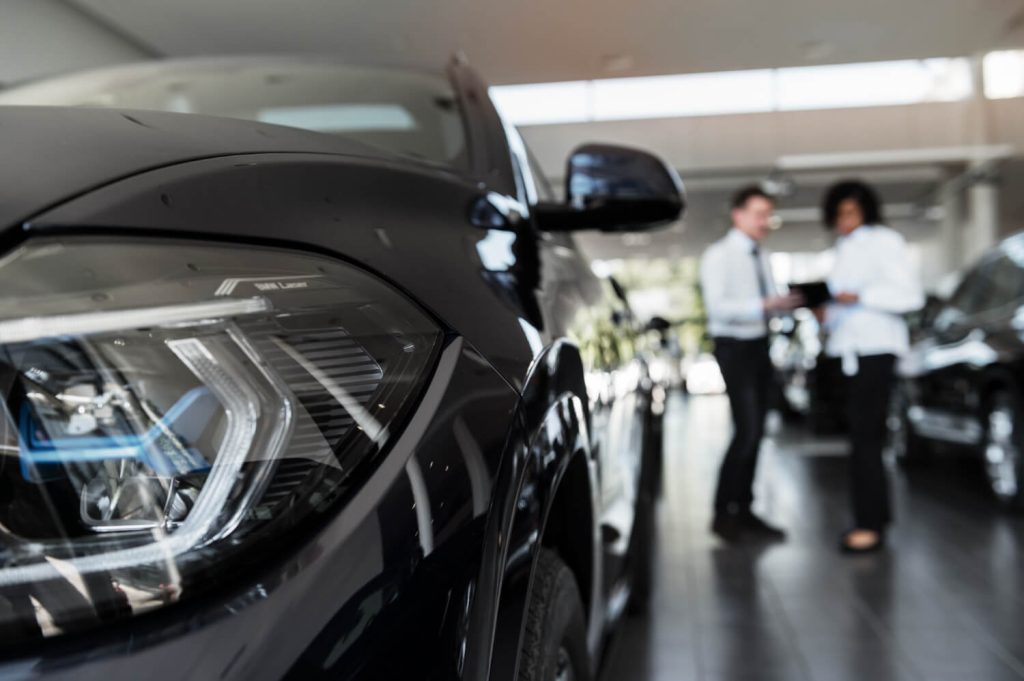Buying a rental car often feels like flipping a coin — there’s a thrill in the deal, but a risk under the hood. These vehicles have seen long distances, driven by countless hands, sometimes with the care of a commuter, other times like a getaway car. Imagine calling a seller about a “great deal” only to find their phone blocked after the sale. Or realizing the battery dies after every cold morning. A rental car purchase can be smart. However, it’s not without landmines. Before driving one home and parking it in your garage, it’s worth understanding what you’re really signing up for.
Why Are Rental Cars Becoming a Popular Option?
Used cars are getting expensive. As a result, buyers are hunting for ways to stretch their money without sacrificing reliability. That’s where rental cars come in. Fleet vehicles usually come from well-known brands, often with newer models and clean maintenance records. For shoppers wondering, are rental cars good to buy, the lower price tag compared to similar used cars makes them appealing. Even small details, like intact floor mats, hint at corporate upkeep and routine care.
Unlike private sales, rental companies rotate inventory quickly, offering vehicles that are just a few years old. Sure, they’ve had plenty of previous drivers — but those drivers were bound by company policies. Smoking bans, regular inspections, and strict cleaning schedules often keep the interior surprisingly fresh. Buyers see it as a chance to save thousands, especially when other used cars in the market have unclear histories or sketchy service records. It’s value, not perfection, that drives interest.
Pros and Cons of Buying a Former Rental Car

Before asking should I buy a rental car, it’s smart to weigh what to expect as a new owner. An ex rental vehicle comes with a unique mix of advantages and drawbacks, and understanding both helps you shop with confidence.
Pros:
- Lower purchase price compared to traditional used cars.
- Well-documented maintenance and service records.
- Often newer models with updated tech and safety features.
- Easier to qualify for financing through dealer partnerships.
- Available nationwide, which gives buyers more options to shop.
Cons:
- High mileage despite young model year.
- Signs of heavy use — example: worn seat fabric or scratched panels.
- Multiple previous owners with unknown habits.
- Limited negotiation room due to fixed fleet pricing.
- Shorter or expired warranties requiring out-of-pocket repairs.
Who Should Never Buy a Rental Car And Why
Some drivers should never buy a used rental car, especially those who demand showroom-level perfection or worry about every scratch. Rental vehicles may show wear from the average number of owners, which is often higher than traditional used cars. If getting the best rate matters more than long-term peace of mind, it’s a gamble. Access to complete recall repairs may vary, and some buyers end up paying more in repairs than they saved upfront. That tradeoff isn’t worth it for everyone.
How Do Rental Cars Compare to Other Used Vehicles?

A rental car purchase stands out when compared to other secondhand options, but not always for the reasons you might expect. When deciding between car rental vs buying a used vehicle elsewhere, the better choice depends on where you search and what kind of ownership history you’re comfortable with.
Rental Cars vs. Lease Returns
| Feature | Rental Cars | Lease Returns |
| Previous Drivers | Many | Typically one |
| Mileage | High for age | Average to low |
| Maintenance | Done routinely by rental fleets | Often maintained through dealership |
| Interior Condition | Can be worn | Usually clean |
| Title Status | Most are clean title cars | Clean titles |
| Buying Source | Rental car companies or used lots | Certified dealers or lease-end sales |
Rental Cars vs. Auction Cars
- Rental vehicles usually come with maintenance records, while auction cars often lack history.
- Auction vehicles may include repos, salvage, or flood-damaged units.
- Rental cars are sold with clean titles more consistently.
- A rental car purchase gives a clearer idea of what you’re getting.
- Auctions require more experience and usually no test drives.
Rental Cars vs. Trade-In Vehicles
- Trade-ins can hide mechanical issues unknown to the dealership.
- Rental fleets service cars regularly and follow strict inspection schedules.
- Trade-ins may vary wildly in condition and upkeep.
- With rentals, buyers know the car was used for short-term rent, not long-haul abuse.
What Really Happens Before a Rental Car Is Sold?
Most rental cars go through a detailed process before hitting the resale lot. Inspections, service updates, and full detailing are common steps, especially for larger chains that value reputation. Buying a car from a rental company may seem risky, but these companies often keep vehicles protected with regular oil changes, tire checks, and safety reviews. The benefit is getting a well-documented car that’s been professionally maintained instead of something that sat forgotten in a private garage.
When thinking about the best time to buy a used car, rental fleets can offer seasonal advantages. Many companies sell in bulk during the fall or early spring. They do this to refresh their inventory for travel seasons. This means more choices for buyers, often including models with under 50,000 miles and two sets of keys. Most rental cars are sold with transparency. Thus, shoppers can focus on features and price instead of hidden surprises.
How to Buy a Rental Car: Step-by-Step
Buying a used rental car takes more than showing up with a check. It requires research and patience. Give yourself at least three days to go through each step before making the deal.
Steps to follow:
- Search for vehicles directly from rental company websites based on your location.
- Use a VIN decoder to confirm factory specs and equipment.
- Request a full vehicle history report to check for accidents and ownership changes.
- Inspect the car in person and look for wear beyond normal use.
- Hire an independent mechanic to inspect the vehicle before committing.
- Ask if the company will waive the rental fee if you test the car before buying.
- Finalize paperwork with a clear title and financing, if needed.
What to Do Immediately After Buying a Rental Car

Once the deal is sealed, the next step is making that car truly yours. Start by checking if the original factory warranty still applies. This procedure is particularly relevant if the vehicle has fewer miles than other used cars. Some rental companies offer limited coverage. However, it’s smart to explore extended plans right away. Review your financing options to ensure the loan fits your budget, and keep an eye on your credit if the dealership arranged the funding. People who buy rental cars often overlook these first few essentials.
Buying Electric Rental Cars
The rise of electric vehicles has brought a new wave of options to the rental resale market. Buying a former rental car that’s fully electric offers some unique benefits, especially as more rental companies expand their EV inventory. Electric models tend to have less wear on brakes and fewer moving engine parts, which can mean lower maintenance costs. However, it’s important to check how the car was charged and driven, since high mileage on an EV may affect battery health differently than on gas-powered cars. Always ask for the owner’s manual and review the specific maintenance guidelines for that model. Limited powertrain coverage might still apply, depending on age and manufacturer, but verify this before signing. As the electric market matures, these used rentals can offer great value — if buyers understand what to inspect and what documents to request during the process.
Summary
Buying a rental car can be a smart move, but only when approached with care and clear expectations. A former rental car might not carry the charm of a privately owned ride, but many are well-maintained, reliable vehicles ready for the road. Always take a thorough test drive, ask tough questions, and review every document before you pay. Some companies are transparent and helpful, while others leave gaps in the story. Treat the search like any major purchase — dig deep, compare cars, and trust only what you can verify.
![]() FAQ
FAQ
Show more
At What Mileage Do Rental Cars Get Sold?
Most rental vehicles are sold between 25,000 and 50,000 miles. This range keeps the vehicles in good mechanical shape. At the same time, companies can refresh their fleets frequently.
What Month Is Good to Buy a Rental Car?
Fall is often the best time to buy a rental vehicle. Many rental companies clear out older inventory after peak summer travel, offering more choices and better pricing.
Can I Return My Rental Car If I Bought It?
Return policies for rental car purchases vary by company. Not all of them allow returns after the sale is final. Some offer a limited window — usually three to seven days—where buyers can return the vehicle if it doesn’t meet expectations. However, the vehicle must often be in the same condition with no added mileage beyond a set limit.
Do Rental Companies Sell Flood or Salvage Vehicles?
Reputable rental companies do not sell flood or salvage vehicles as part of their retail programs. They typically sell only clean-title cars that pass safety and mechanical inspections.
Are There Any Hidden Fees When Buying a Rental Car?
Many rental car companies advertise flat pricing. Nonetheless, hidden fees can still sneak into the paperwork. Among common charges, one can name document preparation fees, dealer service fees, or optional warranties bundled into the contract. Some companies may also add delivery charges or extra costs for reconditioning.
Recommended Articles
:format(webp)/vulcan.abetter.bid%2Fwp-content%2Fuploads%2F2025%2F02%2Fscott-rodgerson-ffH_GkINfyY-unsplash.jpg)

:format(webp)/vulcan.abetter.bid%2Fwp-content%2Fuploads%2F2025%2F05%2Fupgraded-points-WG-38FuLwls-unsplash.jpg)
:format(webp)/vulcan.abetter.bid%2Fwp-content%2Fuploads%2F2022%2F10%2F2022-10-05-11.30.40-150x150.jpg)
 FAQ
FAQ :format(webp)/vulcan.abetter.bid%2Fwp-content%2Fuploads%2F2024%2F02%2Fjakub-nawrot-3FYqzBCSLHQ-unsplash.jpg)
:format(webp)/vulcan.abetter.bid%2Fwp-content%2Fuploads%2F2025%2F01%2Fchad-stembridge-1Je0QPQbCUM-unsplash.jpg)
:format(webp)/vulcan.abetter.bid%2Fwp-content%2Fuploads%2F2025%2F12%2Fcopart-vs-manheim-cover-1.png)
:format(webp)/vulcan.abetter.bid%2Fwp-content%2Fuploads%2F2025%2F11%2Fautobidmaster-vs-copart-1.png)
:format(webp)/vulcan.abetter.bid%2Fwp-content%2Fuploads%2F2025%2F11%2Fa-better-bid-vs-autobidmaster.png)

